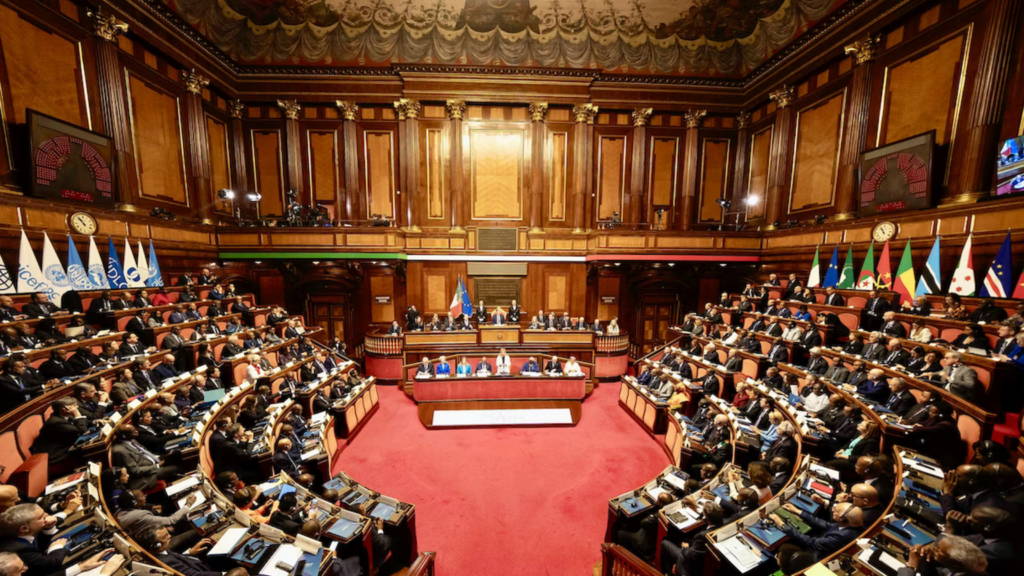Unequal World: IEA Chief Urges “New Relationship” with Energy-Poor Africa

|
Listen to this story:
|
IEA Executive Director Fatih Birol addressed heads of state and government from African countries and around the world on the importance of secure and sustainable energy supplies in underpinning economic development at a high-level summit held by the Italian government in Rome.
At the Italy-Africa Summit hosted by Prime Minister Georgia Meloni of Italy, Dr Birol spoke about the importance of international cooperation and establishing mutually beneficial partnerships, particularly on energy resources, that can generate sustainable growth for a people-centred energy transition.
During the conference, Italy, which holds the G7 Presidency in 2024, shared the priorities of its Mattei Plan, an initiative that will be jointly formulated with African leaders and countries as a model for a renewed approach to Europe-Africa relations. Italy will also make development in Africa an important priority during its G7 Presidency.
RELATED ARTICLE: Global Gas Demand Set to Rise in 2024, Driven by Emerging Economies and Colder Weather: IEA’s latest Gas Market Report says
“Africa’s development path tells the story of the deep-seated inequalities that exist in our world today,” Dr Birol said. “How can it be that Africa is so resource rich and yet so energy poor at the same time? The world needs a new relationship with Africa. One that supports the continent to realise its full potential. And energy is the catalyst.”
More than 600 million people in Africa lack reliable access to electricity and many millions more are not able to benefit from other modern energy services such as clean cooking. Moreover, industries do not have the required energy to modernise and scale up their operations, limiting opportunities for development.
In particular, Dr Birol highlighted the issue of clean cooking access in Africa. Nearly four in five Africans still cook their meals over open fires or on basic stoves, and the number is expected to climb as population growth outpaces progress. The situation has dire impacts on health, gender equality and the environment, with women and children bearing the worst consequences. Dr Birol highlighted that the stoves and infrastructure needed to solve this problem would require just USD 4 billion a year between now and 2030.
To build support for urgent action on the issue, the IEA is convening a Summit on Clean Cooking in Africa on 14 May in Paris. It will be co-chaired by the Prime Ministers of Tanzania and Norway, bringing together leaders from government, the private sector and civil society to discuss concrete solutions.
Dr Birol discussed a range of energy-related issues – including the Clean Cooking Summit, scaling up investment, and governments’ clean energy transition plans – in several bilateral meetings at the Italy-Africa Summit, including with President Filipe Nyusi of Mozambique, Tanzania’s Minister for Foreign Affairs and East African Cooperation January Makamba, and African Development Bank Group President Akinwumi Adesina.






